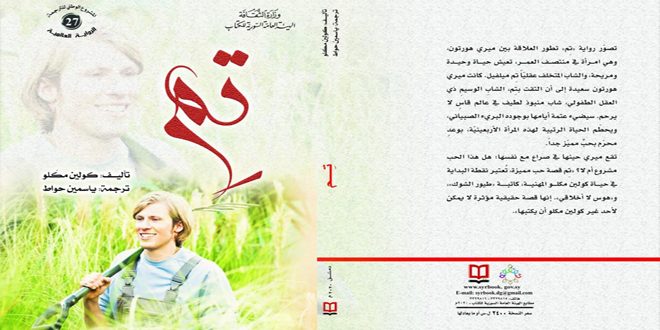Readers of world literature know the Australian novelist, Colleen McCullough, through her most famous novel “The Thorns Birds”, which was made into Syrian and international dramas and was considered one of the best-selling books in Australian history.
The Syrian General Book Authority now allows its readers to be acquainted with a second work of this novelist, who died six years ago, by translating her first work, published in 1974 entitled “Tim”.
“Tim” portrays the story of the developing relationship between a woman in her mid-forties named Mary Horton, and a handsome, simple-minded young man, Tim Melville who illuminates the darkness of Mary’s days and shatters her lonely ordered life with his boyish innocence.
The novel, translated by Yasmine Hawat as part of the national project for translation, deals with the dimensions of this relationship, where Mary lives in a struggle with herself over the legitimacy of this love, her dealings with this gentle outcast and how she saved him from the cruel world.
Through her novel, the author explores the depths of human feelings, where feelings of love between a man and a woman are sometimes mixed with the feelings of motherhood .When this relationship becomes known to society as Tim is exposed to an accident,Mary is shocked by the harsh view of her surroundings asking her to treat this young man as his mother, not his girlfriend or wife.
The novel, which covers 300 pages of medium cut, ends with the submission of the forty-year-old woman to her feelings and the triumph of her love for the mentally retarded young man and decides to stay with him. Tim eventually marries Mary.
The author, Colleen McCullough, was born in Wellington, New Zealand in 1937. She worked as a neurologist in British and Australian hospitals. She left medicine in the late 1970s to devote herself to literature. She passed away in January 2015 after suffering from an illness. Her most well-known works are; The Thorn Birds and The Ladies of Missalonghi.
As for the translator, Yasmine Hawat, she holds a BA in Literature, Department of English Language, and this work is considered her first in translation.
Amal Farhat

